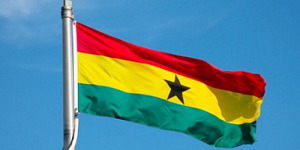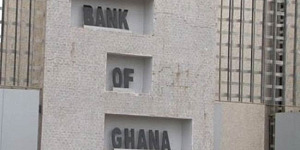Ghana's central bank cut its Monetary Policy Rate (MPR) by 200 basis points to 23.50 percent, saying growth is likely to remain significantly below potential while "underlying inflation pressures have eased considerably and inflation is projected to trend down towards the medium term target."
The Bank of Ghana (BOG) last cut its rate by 50 basis points in November 2016, the first easing since July 2011, but left it unchanged at the previous meeting of its Monetary Policy Committee in January when it noted the the positive trend toward declining inflation.
The central bank was neutral in its guidance, merely saying that it would "take appropriate action necessary towards the attainment of the inflation target."
Ghana's headline inflation rate decelerated for the fifth consecutive month in February to 13.2 percent from 17.2 percent in September 2016 while core inflation, which excludes energy and utility prices, also eased while inflation expectations by consumers, businesses and the financial sector also declined.
"These trends imply dampening underlying inflation pressures," the BOG said, adding that its latest forecasts show a downward trend towards its medium-term inflation target of 8.0 percent plus/minus 2 percentage points.
Despite an improvement in global commodity prices, Ghana's economy faces many challenges, with the fiscal deficit last year higher than targeted on expenditure overruns and revenue shortfalls.
But the central bank said its latest economic activity index had registered an uptick driven by exports, port activities and private sector credit growth while consumer and business confidence reflects positive sentiment about prospects.
Ghana's economy grew by an estimated 3.6 percent in 2016, according to the International Monetary Fund (IMF) in February, which added the decline in inflation had been slower than expected and called on the BOG to maintain "adequately tight monetary policy" to help contain possible further inflation pressures.
The fiscal deficit in 2016 was 8.7 percent of Gross Domestic Product compared with a target of 5.0 percent but the 2017 budget projects a deficit of 6.5 percent, the BOG said.
Ghana's cedi fell sharply in 2013 and 2014 while the speed of the decline slowed from mid-2015 and in the first months of this year. Since early March the cedi has appreciated, helped by a US$1 billion cedi bond and the central bank's first quarter auction of US$120 million.
The cedi was trading at 4.33 to the U.S. dollar today, down 1.2 percent this year.





































